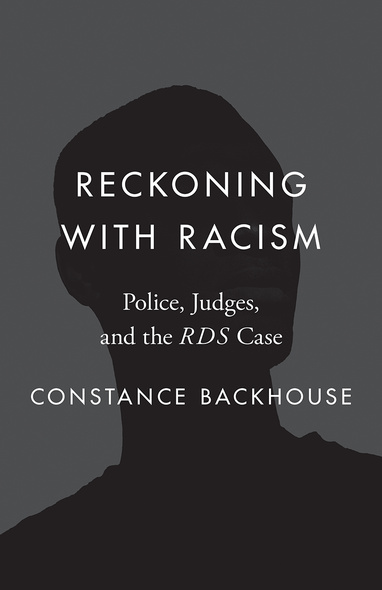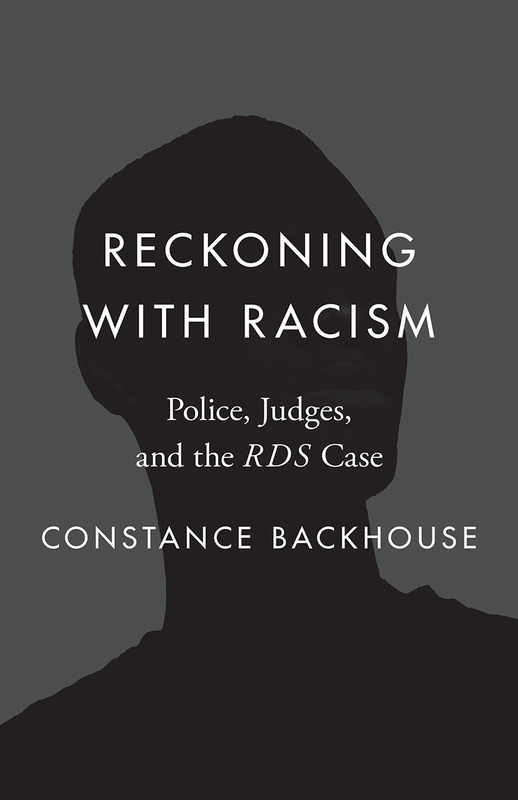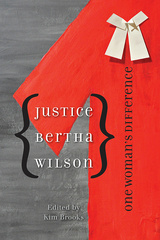
Reckoning with Racism
Police, Judges, and the RDS Case
Interested in Canadian law? Subscribe to the Landmark Cases in Canadian Law series and never miss a title!
The 1997 RDS case is Canada’s most momentous race case. For the first time, the Supreme Court of Canada considered a complaint of judicial racial bias. Ironically, the judge in question was Corrine Sparks, the country’s first Black female judge.
Reckoning with Racism considers the RDS case, in which Judge Sparks was accused of bias against whites. A white Halifax police officer had arrested a Black teenager, placed him in a choke hold, and charged him with assaulting an officer and obstructing arrest. In acquitting the teen, Sparks remarked that police sometimes overreacted when dealing with non-white youth. The acquittal held, but most of the white appeal judges critiqued her comments, based on time-honoured traditions that assumed the legal system was non-racist unless demonstrably proven otherwise. That became a matter of wide debate as anti-racist advocates sought to unmask the presumption of white judicial objectivity. After centuries of racial inequities within policing and the courts, RDS made the issue impossible to ignore.
This book assesses the case, the arrest that precipitated it, the people who took it to court, the excitement surrounding it, the dramatic effects on those involved, and the significance for the Canadian legal system.
This book will have wide appeal among readers interested in racism in Canada. Students of law, history, political science, Canadian studies, and African diaspora studies will also want a copy, as will educators and journalists.
This is a landmark book about a landmark case in Canadian history.
As Backhouse notes in the introduction, decades before George Floyd, this case brought the discussion of race in our legal system into focus, challenging the white privileged and racial silence that generally characterize Western justice.
I highly recommended this book to everyone working in criminal law and those working with racialized communities, and especially those in Nova Scotia. It will also resonate with fans of true crime, community building, and anti-racist activism.
Reckoning with Racism’s strength is its humanistic focus on the people caught up in what was a routine case that spun out of control as it was framed by the media and others to focus on possible racial bias of the judge – as opposed to the tactics used by the police in their interactions with young Black people in Halifax. It is particularly impressive that Professor Backhouse gives us all the voices involved – those of the police and prosecutors as well as Mr. Small and his counsel.
In Reckoning with Racism, Constance Backhouse shares voices of African Nova Scotians and other people involved in and impacted by the RDS case – and encourages the reader to reflect upon the ongoing tensions in how the law is used to resist or reinscribe racial hierarchies.
Constance Backhouse is a Distinguished University Professor of Law at the University of Ottawa. She has written numerous prize-winning books, including Colour-Coded: A Legal History of Racism in Canada, 1900–1950 and Petticoats and Prejudice: Women and Law in Nineteenth-Century Canada. She has been awarded the Killam Prize, the Molson Prize, and the Governor General’s Persons Award. She is a Fellow of the Royal Society of Canada and a member of the Order of Canada.
Introduction
1 The Trial
2 The People
3 A Black History of Nova Scotia
4 Race and Policing in Nova Scotia
5 The Initial Fallout
6 The Appeals Begin in Nova Scotia’s Supreme Court
7 Nova Scotia Court of Appeal
8 Gender Matters
9 Appeal to the Supreme Court of Canada
10 The Supreme Court of Canada’s “Gang of Five”
11 The Concurring Opinion in Defence of Judge Sparks
12 Epilogue
Conclusion
Chronology
Notes; Index












